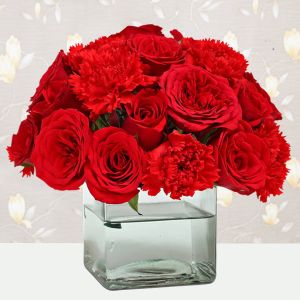Flowers: Nature's Exquisite Creations
Flowers are nature's exquisite creations, cherished worldwide for their beauty, fragrance, and symbolic significance. They play integral roles in human culture, ecology, and daily life, offering much more than visual appeal.
One of the most captivating aspects of flowers is their sheer diversity and stunning beauty. They come in countless shapes, sizes, colors, and fragrances, each with its own unique charm. From the intricate petals of a rose to the delicate blossoms of cherry trees, flowers captivate our senses and inspire artists, poets, and designers alike.
Cultural and Symbolic Significance
Throughout history and across cultures, flowers have held profound symbolic meanings. They are often used to express emotions, convey messages, and mark significant occasions such as weddings, funerals, and celebrations. For example, red roses symbolize love and passion, while lilies signify purity and renewal. In some traditions, certain flowers are believed to bring luck, protection, or healing.
Ecological Importance
Beyond their aesthetic and cultural value, flowers are vital components of ecosystems. They play essential roles in pollination, serving as food sources for pollinators like bees, butterflies, and birds. This pollination process is crucial for the reproduction of many plant species, including those that provide food for humans and animals.
Medicinal and Therapeutic Uses
Many flowers possess medicinal properties and have been used in traditional medicine for centuries. Plants like chamomile, lavender, and calendula are renowned for their calming and healing effects. Modern research continues to explore the potential therapeutic benefits of flower extracts and essential oils in areas such as aromatherapy and skincare.
Gardening and Horticulture
Gardening enthusiasts appreciate flowers for their role in landscaping and horticulture. Cultivating and arranging flowers in gardens or indoor spaces allows individuals to create visually stunning displays and enhance the ambiance of their surroundings. Horticulturalists also work to breed new varieties of flowers with improved characteristics such as disease resistance, bloom size, and longevity.
Celebratory and Decorative Purposes
Flowers are a staple in celebrations and decorations worldwide. They adorn wedding venues, reception tables, religious ceremonies, and festive occasions, adding a touch of elegance and color. Floral arrangements, bouquets, and wreaths are meticulously crafted to enhance the atmosphere and convey sentiments of joy, sympathy, or gratitude.
Environmental Conservation and Preservation
The conservation of wildflowers and native plant species is crucial for maintaining biodiversity and ecosystem balance. Efforts to protect endangered flowers and their habitats contribute to preserving natural landscapes and supporting the wildlife that depends on them.
Conclusion
In summary, flowers are much more than mere decorations or gifts; they are integral to human culture, ecology, and well-being. Their beauty, diversity, symbolic meanings, and ecological roles enrich our lives in profound ways, making flowers an enduring source of fascination and admiration across the globe.
